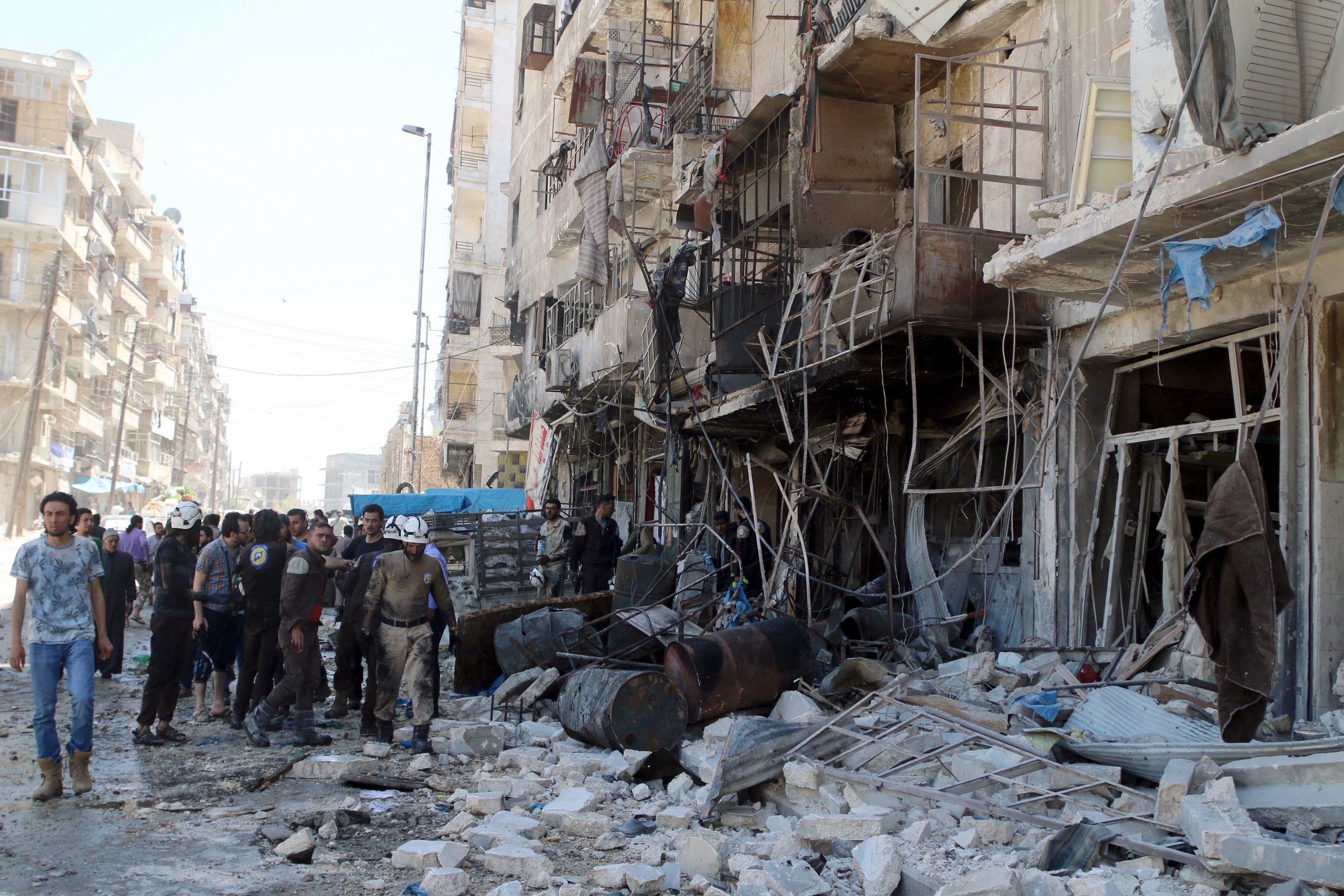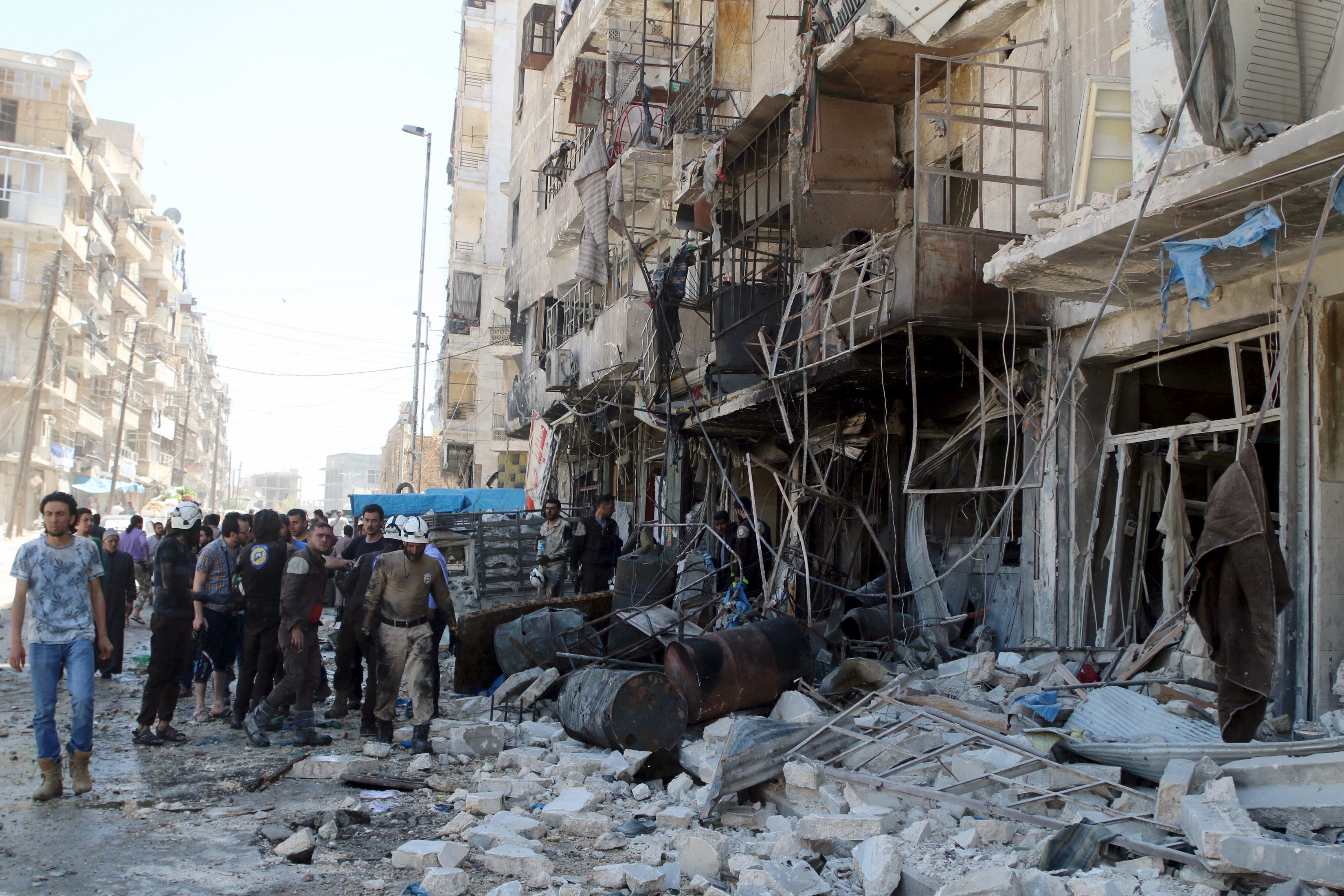
HANOVER, Germany (Reuters) – President Barack Obama announced on Monday the biggest expansion of U.S. ground troops in Syria since the civil war there began, saying he would dispatch 250 special forces soldiers to help local militia to build on successes against Islamic State.
The new deployment increases U.S. forces in Syria six-fold to about 300. While the total U.S. ground force is still small by comparison to other American deployments, defense experts said it could help shift the momentum in Syria by giving more Syrian fighters on the ground access to U.S. close air support.
Announcing the decision in Germany at the end of a six-day foreign tour, Obama said the move followed on victories over Islamic State that clawed back territory from the hard-line Sunni Islamist group.
“Given the success, I’ve approved the deployment of up to 250 additional U.S. personnel in Syria, including special forces to keep up this momentum,” Obama said in a speech at a trade fair in the northern city of Hanover, the last stop on a trip that has taken him to Saudi Arabia and Britain.
“They’re not going to be leading the fight on the ground, but they will be essential in providing the training and assisting local forces as they continue to drive ISIL back,” he added, using an acronym for Islamic State, also known as ISIS.
The U.S. military has led an air campaign against Islamic State since 2014 in both Iraq and Syria, but the campaign’s effectiveness in Syria has been limited by a lack of allies on the ground in a country where a complex, multi-sided civil war has raged for five years.
Russia launched its own air campaign in Syria last year, which has been more effective because it is closely coordinated with the government of President Bashar al-Assad, who is Moscow’s ally but a foe of the United States.
CLOSE AIR SUPPORT
Washington’s main allies on the ground have been a Kurdish force known as the YPG, who wrested control of much of the Turkish-Syrian border from Islamic State. The alliance is complex because U.S. ally Turkey is deeply hostile to the YPG.
“Presumably these are going to assist our Kurdish YPG friends to widen and deepen their offensive against IS in northeastern Syria,” Tim Ripley, defense analyst and writer for IHS Janes Defence Weekly magazine, said.
“You can provide more advisers to more units, to allow more units to receive close air support,” Ripley said, of the new U.S. deployment. “The more people you have, the more militia groups can have close air support that makes them more effective so they can advance in more areas.”
The Syria Democratic Forces, a U.S.-backed coalition set up in October to unite the Kurdish YPG and some Arab allies, said it welcomed Obama’s announcement but still wanted more help.
“Any support they offer is positive but we hope there will be greater support,” SDF spokesman Talal Silo said. “So far we have been supplied only with ammunition, and we were hoping to be supplied with military hardware …”
Ripley said Washington would still have to take a political decision to help the Kurds despite Turkish objections. Kurdish advances have largely stopped since February, with Turkey strongly objecting to the Kurds taking more territory.
“The real question has to be: are they going to let the Kurdish YPG forces actually go and attack and capture some territory? This is something the Americans have not been happy about because when the YPG forces attack and capture territory, it tends to anger the president of Turkey,” Ripley said.
If the Kurds are given the green light to advance with American air support, the main short-term objective could be sealing off the last stretch of the border that is not held by the Kurds or the government, west of the Euphrates river.
That would deny Islamic State access to the outside world, but would infuriate Turkey which regards the border as the main access route for other Sunni Muslim rebel groups it supports against Assad, and for aid to civilians in rebel areas.
THE RACE FOR RAQQA
U.S. special forces teams providing close air support could ultimately help the Kurds advance on Raqqa, Islamic State’s main Syrian stronghold and de facto capital.
“This places them in another quandary. Do they coordinate their attack on Raqqa with the Syrian army and the Russian air force, who are … advancing on Raqqa? … The question is who’s going to get there first,” Ripley said.
With German Chancellor Angela Merkel sitting in the audience, Obama also urged Europe and NATO allies to do more in the fight against Islamic State, also known as ISIS or ISIL.
The group controls the cities of Mosul in Iraq and Raqqa in Syria and a swathe of territory in between, and has proven a potent threat abroad, claiming responsibility for major attacks in Paris in November and Brussels in March.
“Even as European countries make important contributions against ISIL, Europe, including NATO, can still do more,” Obama said ahead of talks later in the day with Merkel and the leaders of Britain, France and Italy.
European countries have mostly contributed only small numbers of aircraft to the U.S.-led mission targeting Islamic State fighters in Iraq and Syria.
Obama pledged to wind down wars in the Middle East when he was first elected in 2008. But in the latter part of his presidency he has found it necessary to keep troops in Afghanistan, return them to Iraq and send them to Syria, where the five-year civil war has killed at least 250,000 people.
Deputy National Security Adviser Ben Rhodes, briefing reporters before Obama spoke, said U.S. forces “are not being sent there on a combat mission”.
In Iraq, Islamic State has been forced back since December when it lost Ramadi, capital of the western province of Anbar. In Syria, jihadist fighters have been pushed from the strategic city of Palmyra by Russian-backed Syrian government forces.
TALKS IN MELTDOWN, TRUCE IN TATTERS
But Washington’s lack of allies on the ground has meant its role in Syria has been circumscribed. The sudden entry of Moscow into the conflict last year has tipped the balance of power in favor of Assad, against a range of rebel groups supported by Turkey, other Arab states and the West.
Washington and Moscow sponsored a ceasefire between most of the main warring parties since February, which allowed the first peace talks involving Assad’s government and many of his foes to begin last month. However, those talks appear close to collapse, with the main opposition delegation having suspended its participation last week, and the ceasefire is largely in tatters. Islamic State is excluded from the ceasefire.
Fighting has increased in recent days near Aleppo, once Syria’s largest city, now split between rebel and government zones. A monitoring group said 60 people had been killed there in three days of intense fighting, including civilians killed by rebel shelling and government air strikes.
The Syrian government’s negotiator at the Geneva talks said a bomb hit a hospital near a Shi’ite shrine near Damascus, killing many innocent people and proving the government’s enemies were terrorists.
(Reporting by Roberta Rampton and Andreas Rinke in Hanover, Jeff Mason and Kevin Drawbaugh in Washington, Michelle Martin in Berlin and Peter Graff in London; writing by Noah Barkin and Peter Graff, editing by Peter Millership)












